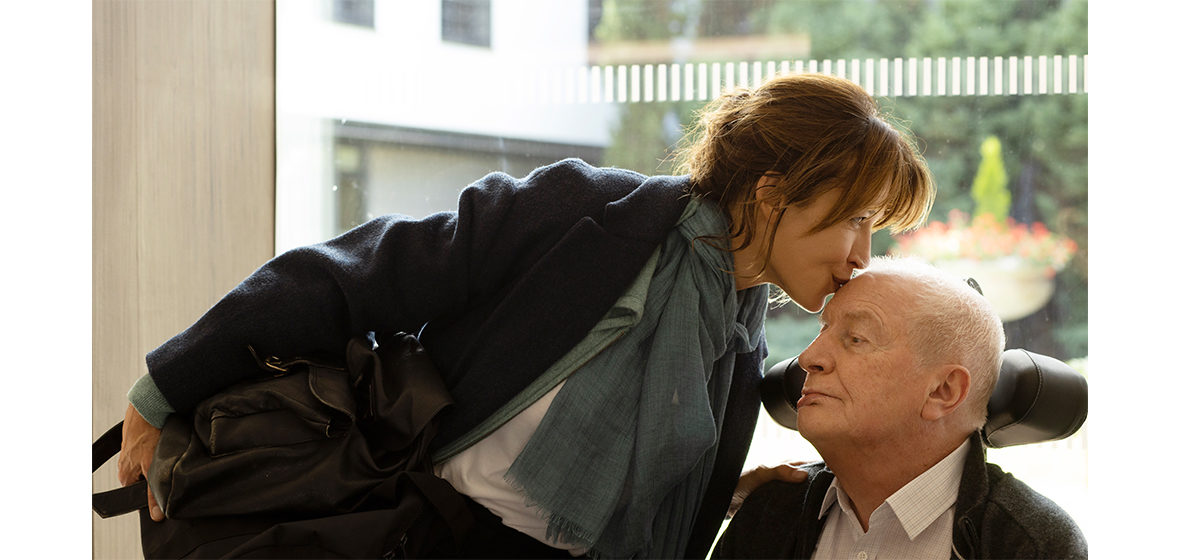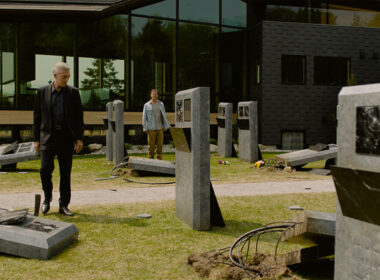Rating: ***
François Ozon may be the most reliable filmmaker still working. Since his debut in 1998, he has directed 20 features and many other short films. He worked with giants of French cinema, including Catherine Deneuve, Fanny Ardant, Isabelle Huppert, Kristin Scott Thomas, and Gerard Depardieu. Even Sam Neill and Charlotte Rampling crossed paths with him. He has never won a major prize in any of the top film festivals but has been nominated countless times and remains a household name in modern French cinema.
Ozon is the kind of director that everyone respects, mainly because there isn’t anything offensive in his oeuvre. The films are audience-friendly, entertaining without being patronising, and offer his cast some of the best and most exciting roles at any stage of their career. See Deneuve’s renaissance in Potiche, or how he repositioned Huppert, known for her dramatic intensity, as a comedic force in 8 Women. He’s the most accessible filmmaker to show to someone stubborn about foreign films.
Always unpredictable, Ozon’s latest is a serious drama about a sick man who asks his daughter to assist him in dying with dignity. In fact, the story is about the daughter, Emmanuelle (Sophie Marceau, unrecognisable), and how she navigates the trauma torn between her love for her father, André (André Dussollier), and their rocky relationship.
Why did André ask this one daughter and not the other, or even his wife (Charlotte Rampling) who he still lives with? Why did he burden his family with this most challenging task – to find a way for him to die in peace when in France, euthanasia is still restricted to particular cases.
The reason why Everything Went Fine works so well is because of characterisation. Ozon’s script is flawless without being flashy. He uses every moment to induce a sense of familiarity in his characters, so when the audience is faced with a new scene, we are acutely aware of what to feel. For example, we learn early on André is an important figure in the Paris art scene. When Emmanuelle visits a new exhibition, it’s difficult to see her traverse a sea of people asking about her father, unaware of his situation, oblivious he wants to die.
There’s a hard personal touch here. It reminded me of dealing with one side of my family asking me about my father at the peak of his illness. Nothing beyond trivialities can be answered. You are forced to play a role you never wanted.
The drama is ramped up when you learn a new element about André and his life. Openly gay, he married his wife for appearances when his nature wasn’t accepted. Maybe that’s where his sardonic unpleasantness stems from. He loves his grandson but doesn’t care much about his granddaughter; perhaps having two girls he never asked for has something to do with it. He has a boyfriend, maybe just a lover, or perhaps a paramour, who is abusive or maybe not; either way, their relationship is turbulent. Ozon knows the best course of making these characters alive is to let us see them without judgment. Some things we’re not supposed to know. It’s private.
The payoff is not a big surprise. Spoilery title aside, the film is not interested in cheapening its message with a big poetic truth. To stay honest about its subject, the last segment almost works as a spy thriller; Emmanuelle, with the help of her sister and partner, jumping through hoops to try to fool the police so André can escape safely to Switzerland. The morale lies in the commitment these characters have to ensure the one wish of the man they hate to love.
Do you remember The Sea Inside? That 2004 film where Javier Bardem plays a man fighting the Spanish authorities for the right to die? It finished with this long monologue about the grandiosity of life and how it’s worth dying for. Everything Went Fine spares us such schmaltziness and lets the celebration of life thrive between the lines.
So why three stars? There’s nothing wrong with it, and it’s on the higher end of the rating. It comes with a guarantee that you will connect with it. It’s not a ground-breaking masterpiece, nor a unique piece of work. But it’s good solid filmmaking that invites its audience in.




